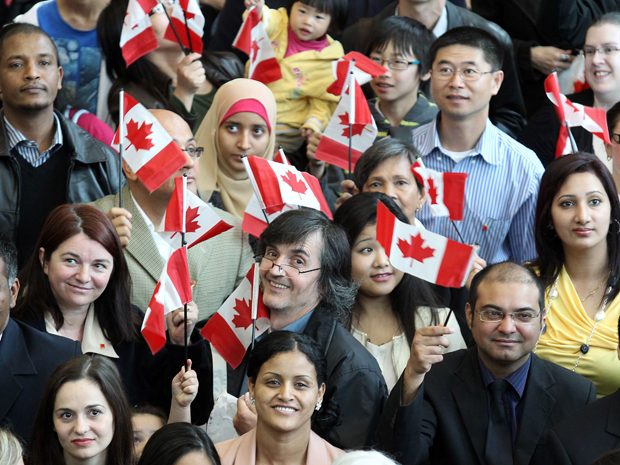Pilot project will ensure the safety of staff and clients, immigration department says
Immigration officials are beginning gradually to resume in-person services after the pandemic forced many programs to shut down, frustrating immigrants whose lives were put on hold.
Immigration, Refugees and Citizenship Canada (IRCC) shut down immigration tests and citizenship ceremonies in March to protect the health and safety of staff and clients. The department started offering some virtual services over the last few months. Starting this week, it is opening in-person services by appointment only.
“This testing phase will allow us to assess our protocols and procedures and ensure the safety of our staff and our clients. The lessons learned will help us plan for reopening services more widely in the future,” says the IRCC’s website.
Limited services being offered at specific locations include citizenship, services related to permanent residence, asylum claims and biometrics.
Clients must wait for government officials to schedule appointments before visiting an IRCC site and should not call IRCC to try to arrange a date themselves, the department says.
William Ojeda and his family have waited an agonizing three years to renew their permanent residency, a time frame he said is unreasonable. They are now unable to re-enter Canada from Mexico.
“Being unable to be in Canada, and the uncertainty and anxiety of almost three years checking the IRCC website pretty much daily after the initial reasonable delay, and worrying for the well-being of my kids has been really, really hard,” he wrote in an email from Guadalajara.
Odeja, his wife and their eldest daughter were born in Mexico, while his two younger daughters were born in Canada and are citizens.
‘Three years lost’
“We have never broken a law … we live, by choice, by Canadian written and social laws and yet we feel treated as second class immigrants,” he said.
“If the decision is favourable, of course, it would be a happy ending and all the uncertainty, anxiety and fear will blur over time. If negative, it would be all for nothing, with three years lost on our life plan, which is in Canada.”
Ojeda said the delay in processing his file predated the pandemic. COVID-19 has created a bigger backlog in many cases, however.
Conservative immigration critic Raquel Dancho said she’s heard from countless families affected by what she calls the “administrative ineptness” of IRCC.
“The lack of a plan throughout the pandemic has failed refugees and immigrants who wish to come to Canada,” she said.
“The Liberals have failed to ensure a fair and compassionate immigration process for the world’s most vulnerable. Frankly, it’s unacceptable and those that depend on the immigration system deserve better.”

NDP MP Jenny Kwan said MP offices have been “inundated” with immigration applicants’ desperate pleas for help. She said several of her MP colleagues have reported that immigration cases consume up to 90 per cent of their constituency casework.
“It’s apparent that there has been little to no movement on IRCC offices resuming their work up to now. The limited capacity of the restart will still mean that too many people are still just going to be stuck in the system with ongoing delays,” she said.
“People are still being asked to continue to put their lives on hold. Is it a wonder that families desperate to reunite with their loved ones feel that their cries for help are just falling on deaf ears? The problems with the backlog are so deep that this limited restart will do little to reassure those stuck in the system.”
Efforts to speed up processing
Mathieu Genest, spokesperson for Immigration Minister Marco Mendicino, said the department has been adapting its systems to speed up the processing of applications while protecting the health and safety of staff, clients and Canadians. IRCC has prioritized applications from Canadians and permanent residents returning to Canada, as well as people performing essential services.
Staff now have more resources and streamlined processes for working remotely, he said.
“The expansion of the resumption of in-person services will depend on the results of and lessons learned during this pilot, as well as regional health guidelines, available capacity and virtual alternatives, among other considerations,” he said.
IRCC has introduced safety measures at its locations — including a self-assessment questionnaire that must be completed before an appointment and again before entering the premises.
All employees and clients are required to wear masks, maintain physical distance and follow signs directing the flow of foot traffic. People who appear ill will have to reschedule their appointments.

